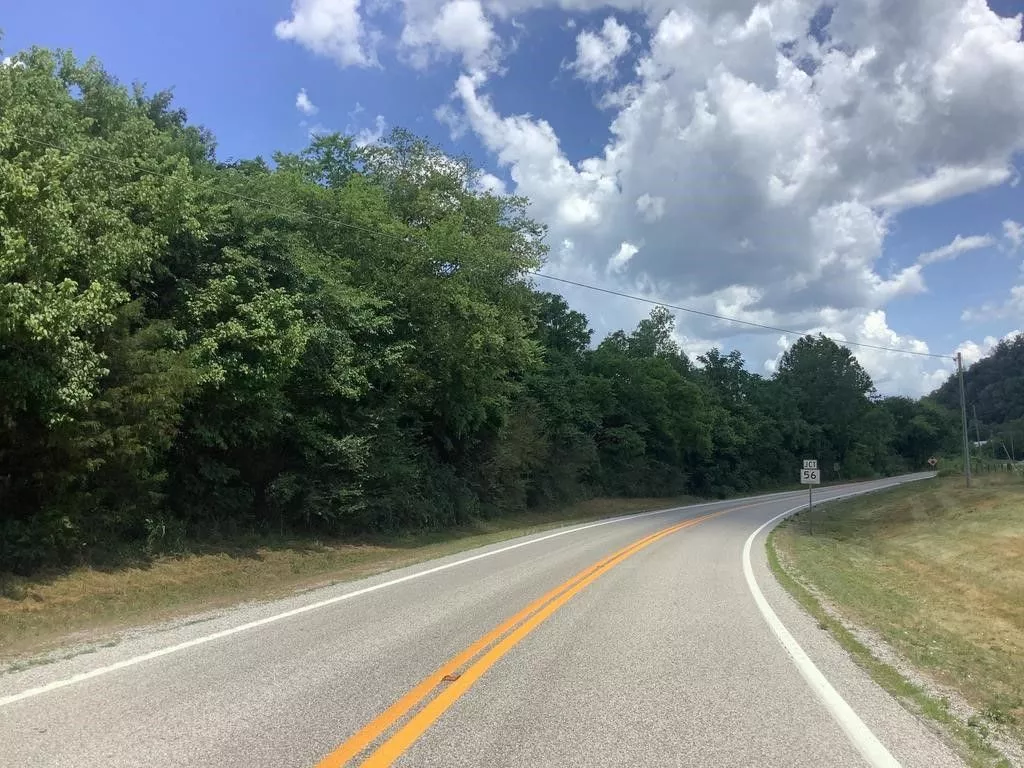The Tennessee Department of Transportation (TDOT) decided a scrub seal would be the best option to address cracking along State Route 56. TDOT is no stranger to applying scrub seal, having used the treatment on roads throughout their network for 10+ years.
At less than half the cost of a mill and fill, a scrub seal allows agencies to seal cracks long term while also providing friction and enhanced durability. During the scrub seal process, emulsion is sprayed onto the road surface. A broom sled attached to the distributor forces the emulsion deep into voids and cracks. Aggregate is spread on top of the emulsion and then compacted. The roadway is then swept, which is a common practice following a scrub seal in order to remove excess aggregate from the road surface prior to return to traffic.

SR 56 Application
In May 2021, the contractor, Hudson Construction, applied a scrub seal treatment to five miles of SR 56. Ergon Asphalt & Emulsions’ eScrub rejuvenating scrub seal was Hudson’s emulsion of choice for this project. The emulsion was shot at 0.32 gallons per square yard and the spread rate for the aggregate (# 8 stone) was 18 pounds per square yard. Traffic was returned to the surface one hour after application.
The economical eScrub application is expected to extend the service life of the treated section of SR 56 by up to seven years.
Additional Use
In addition to serving as a stand-alone treatment, a scrub seal can also be applied as a stress absorbing interlayer or as the first course of a cape seal. Learn how other agencies are using eScrub here: eScrub Success Stories. Then, contact your local salesperson to find out if scrub sealing with eScrub is the right solution for your roads.








